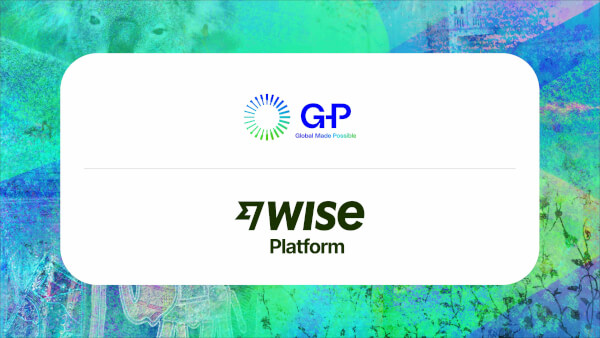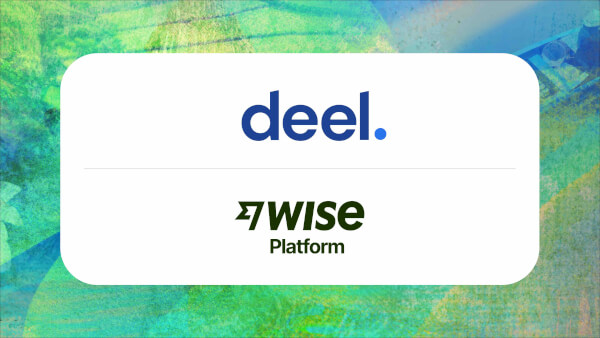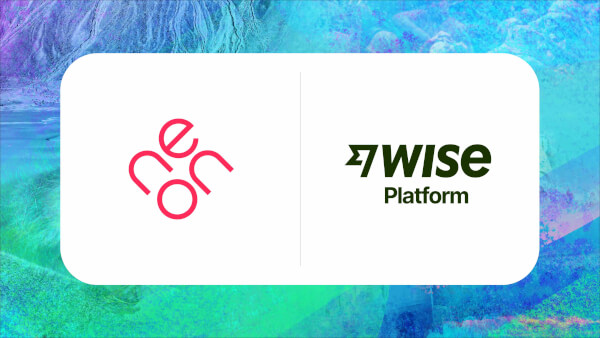Asia-Pacific players embrace partnership to win customer share in cross-border payments
Many banks are taking the first steps toward delivering exceptional customer experiences by using next-generation correspondent service providers.

More than 300 senior payments leaders from over 100 banks and businesses across Europe gathered at Wise Connect London this May to address one critical challenge: how to build exceptional payments experiences that meet evolving customer demands—and why partnership has emerged as the most effective way to achieve this. Here's a summary of the insights and innovations that shaped discussions with senior representatives from Citi Bank, J.P. Morgan, Monzo, Accenture, Raiffeisen Bank, Unicredit and Itaú Unibanco.

Senior executives from J.P. Morgan, Citi, Wise Platform and Accenture agreed that the G20 Roadmap is set to reshape the industry's revenue models and frameworks, meaning banks and businesses alike must prepare to make significant changes to the way they manage and deliver their cross-border payments services.
Customer experience has never been more critical
Consumers now expect the same fast, low-cost and transparent experience from their global payments as they do from their domestic counterparts. The evidence is strong: Accenture research presented at the conference shows that over 68% demand increased transparency, 62% want lower fees and 44% expect greater speed from their payment providers.
Business-to-business payments show an even more pronounced shift, with over 83% of corporates demanding increased transparency, 67% wanting lower costs and 50% expecting greater speed from their payment providers.
These trends make it imperative for organisations to invest in their global payments infrastructure—not only to grow cross-border payment revenue, but also to retain their customers within their product ecosystems.
However, translating these demands into action requires more than recognition—it demands innovation. Many banks are already tackling this challenge head-on.
Presenting at the conference, Monzo exemplified how to turn this challenge into a competitive advantage. Through resilient infrastructure backed by intuitive design, over one million Monzo customers have moved billions of pounds across borders powered by Wise Platform’s infrastructure.
Transparency as a competitive advantage
Monzo's success stems from creating a transparent, customer-centric payment experience. The bank has embraced end-to-end transparency by showing customer fees upfront, displaying balances after payment, clearly explaining payment routes, and updating information dynamically throughout the transaction process.
Transparency isn’t just good practice, it’s quickly becoming a competitive advantage, enabling businesses to build customer trust and grow revenue. However, as multiple speakers noted, delivering this level of transparency requires addressing fundamental infrastructure challenges.
Modernisation is business critical
Building these customer-focused solutions is far from easy. Transparency becomes difficult to achieve when significant friction still exists in the processing of cross-border payments.
Despite many technological advances, cross-border payment failures continue to impact the industry, averaging 14% globally. However, our conference speakers highlighted three key areas where the sector is making progress to improve this.
First, the industry has rolled out the standardised messaging format ISO 20022, supporting more efficient and secure data exchange between financial institutions. Banks have already made investments to meet these new requirements.
Second, many countries are upgrading their domestic payments infrastructure to make local payments more convenient. The success of instant payment systems, such as Brazil's PIX network, demonstrates the market's demand for immediate payment experiences and showcases what’s possible when modernisation is prioritised at a domestic level.
Lastly, many countries are rolling out verification of payee schemes to tackle failed payments and fraud. These solutions confirm account accuracy and name matching before cross-border payments are processed.
Yet, many organisations struggle to carry out the extensive infrastructure upgrades required to leverage these developments.
Experts from J.P. Morgan, Accenture and Citi explored the evolution of the payments sector, infrastructure investments and innovation. They talked about the G20’s Roadmap to make cross-border payments fast, low-cost, transparent and accessible. The panelists agreed that payment providers who invest in modernising their infrastructure now will be better positioned to meet these targets.
Perhaps one of the most compelling themes to emerge from these discussions is the important role that collaboration plays in helping banks and businesses solve their infrastructure challenges.
Partnership: the key to success
With both customer expectations and regulatory requirements driving change, many organisations must weigh up the benefits of how best to deliver these exceptional payment experiences.
Our panellists unpacked why partnership is emerging as the best option, saving organisations the cost, complexity and time of buying or building their own global network.
This theme was reinforced by two significant announcements at the event, as Raiffeisen Bank International and Itaú Unibanco shared their recent decisions to partner with Wise Platform.
Raiffeisen Bank shared why the European bank decided to collaborate with Wise, and how our extensive global network and our ethos of transparency and efficiency influenced its decision to do so.
Itaú Unibanco unpacked how the Brazilian bank’s recent partnership with Wise Platform solved critical capability gaps more effectively than building the infrastructure in-house—and importantly, without the investment of time, resources and money that a build would require.
Moving forward
Across all the presentations and panel discussions, one theme resonated consistently: organisations delivering on customer expectations for low cost, fast and transparent cross-border payment experiences are better positioned to capture stronger customer relationships, sustained growth and enhanced market longevity.
As customer expectations continue to evolve and regulatory requirements intensify, the question isn't whether to modernise payments infrastructure, but how to do it most effectively. Industry leaders agree that strategic partnership is the most promising path to meeting these challenges while positioning for future growth.
We look forward to next year's discussion. Visit our website for our regional events in San Francisco and Singapore later this year.
*Please see terms of use and product availability for your region or visit Wise fees and pricing for the most up to date pricing and fee information.
This publication is provided for general information purposes and does not constitute legal, tax or other professional advice from Wise Payments Limited or its subsidiaries and its affiliates, and it is not intended as a substitute for obtaining advice from a financial advisor or any other professional.
We make no representations, warranties or guarantees, whether expressed or implied, that the content in the publication is accurate, complete or up to date.

Many banks are taking the first steps toward delivering exceptional customer experiences by using next-generation correspondent service providers.

Triin Teppo, Wise's Head of Global Products Operations, examines the importance of straight-through processing for improving the customer experience.

Problem Getting paid on time and the right amount has long been the biggest downside of flexible work for freelancers or contractors. Often it is the...

Deel is a leading global HR and payroll company enabling more than 15,000 companies, spanning from SMBs to large enterprises, to scale their teams around the...

Problem Sending money abroad can still be complex, expensive, and slow. For too long, Swiss customers have had few choices about how to send their money...

Discover how leading SME financial service provider Qonto partnered with Wise Platform to double the adoption of its international transfers feature.